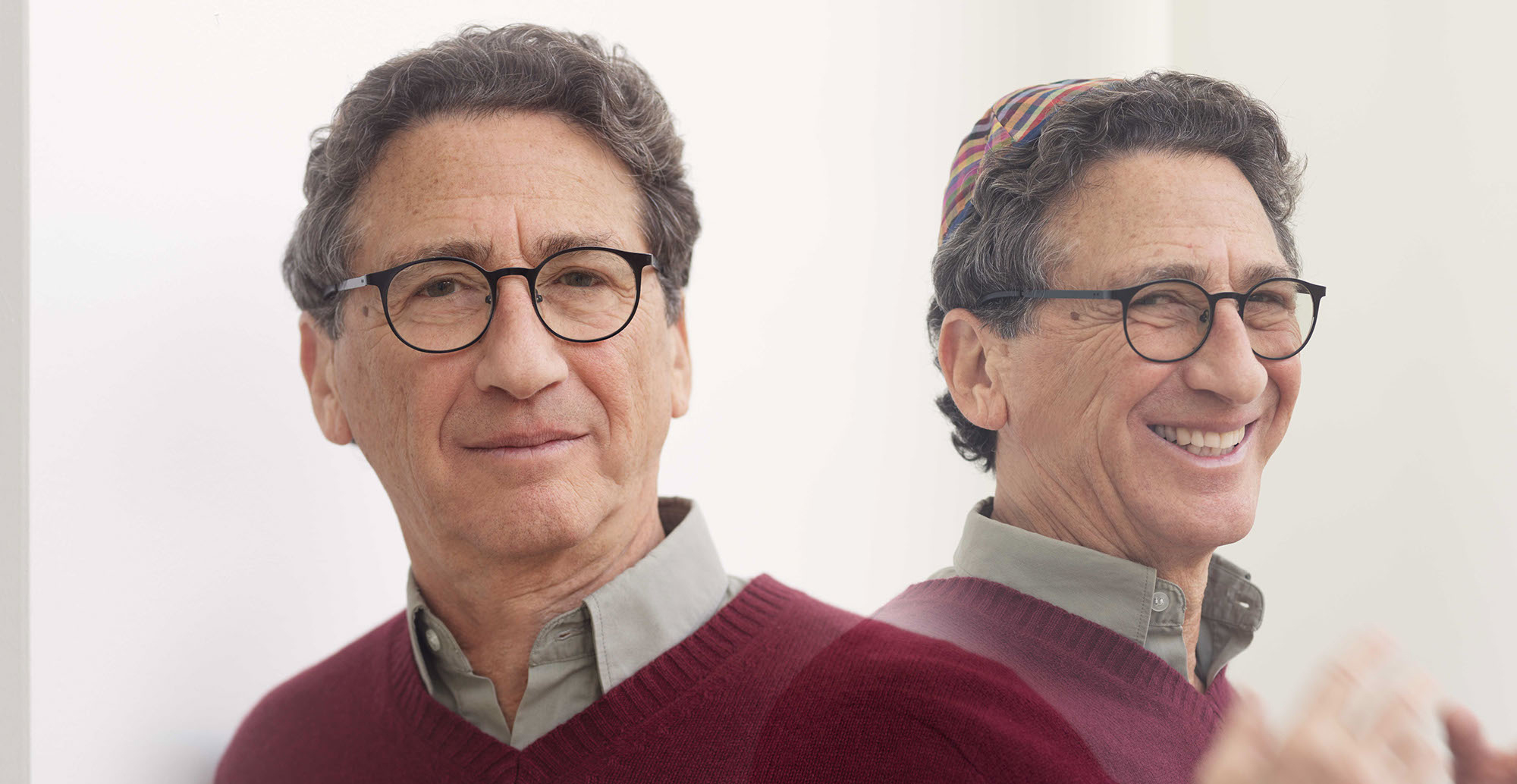Peter Vig

Peter Vig - Jewish resource at Malmö Borgarskola.
"I have seen the power of personal encounters"
- I cycle to Malmö Borgarskola, get off the bike, put on my coat, and go inside. With the kippah, I show that I am Jewish.
- My parents came from a small town in northeastern Hungary. My father was deported to the Auschwitz concentration camp with his family, siblings and their children. He and a nephew were the only ones who survived. His wife and children, my half-siblings, did not. My mother had five siblings who were deported with their parents, her little brother was the only one who survived. My mother, a sister and the sister's two young children managed to hide in the countryside. I myself was born in Budapest in 1954. After the Soviet invasion of Hungary in 1956, my family fled to Austria. We came to Sweden as quota refugees in May 1958.
- Borgarskolan is Malmö's largest school and it is quite diverse. There is a good energy here, but the principal was concerned and said that even if there was no open anti-Semitism, teachers must be sensitive to dispositions. I jokingly suggested that he could have a "wandering Jew" in the corridors. I had just retired as a teacher and said I could see myself being at the school a few hours a week.
- I sit in the various common areas and lounges that are available to the students, as well as in the cafeteria and the teachers’ break room. I am invited to give lessons on religion or history. I teach about Judaism and my Jewish identity or give a history lesson where I talk about my family's history in Europe throughout the 20th century and to today. It includes the story of my parents' experiences during the Holocaust and our escape from Hungary in 1956, along with our life in Sweden for more than 60 years.
- The students happily greet me in the hallways and think it's good that I'm there at the school. Sometimes someone asks me about my parents and about the Holocaust, sometimes about Judaism and how I practice my faith. It is always a very interesting and nice conversation. I am also very curious about their different backgrounds and always ask questions about it. Their stories give me a lot in return.
- It is also not always so important that I speak, but just be there as a Jewish person. They have experienced me as a human being and know that I am a Jew even though we have not talked about it. I know how important personal encounters are. I have seen the power of associations like the Eyewitnesses of the Holocaust (Förintelsens Ögonvittnen), when the survivors tell their stories. Under the new name the Narrator Group of Holocaust Survivors (Berättargruppen Förintelsens efterlevande), I and a dozen other children, grandchildren, and great-grandchildren continue the important work of telling about our families' lives and destinies before, during, and after the Holocaust.
- The Holocaust is very much alive in us children and grandchildren. It has also affected us and we must be vigilant so that it does not happen again. I would have preferred not to talk about the Holocaust, but I think it is a duty.
- Stories about the horrors of the Holocaust are needed so that we can put it in relation to other oppression. We can thereby also create an understanding of what others are exposed to, how bad it is and how quickly it can then progress from belittling, despising, and demonizing a group to something even worse.
Sidan senast uppdaterad: